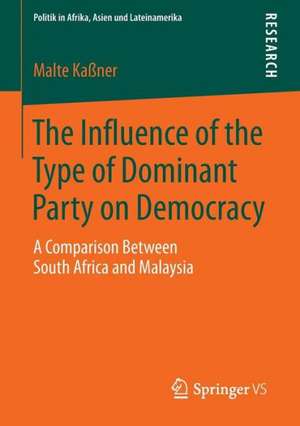The Influence of the Type of Dominant Party on Democracy: A Comparison Between South Africa and Malaysia: Politik in Afrika, Asien und Lateinamerika
Autor Malte Kaßneren Limba Engleză Paperback – 12 dec 2013
Preț: 391.79 lei
Nou
Puncte Express: 588
Preț estimativ în valută:
74.98€ • 77.99$ • 61.90£
74.98€ • 77.99$ • 61.90£
Carte tipărită la comandă
Livrare economică 15-29 aprilie
Preluare comenzi: 021 569.72.76
Specificații
ISBN-13: 9783658044374
ISBN-10: 3658044373
Pagini: 384
Ilustrații: XXII, 362 p. 2 illus.
Dimensiuni: 148 x 210 x 25 mm
Greutate: 0.5 kg
Ediția:2014
Editura: Springer Fachmedien Wiesbaden
Colecția Springer VS
Seria Politik in Afrika, Asien und Lateinamerika
Locul publicării:Wiesbaden, Germany
ISBN-10: 3658044373
Pagini: 384
Ilustrații: XXII, 362 p. 2 illus.
Dimensiuni: 148 x 210 x 25 mm
Greutate: 0.5 kg
Ediția:2014
Editura: Springer Fachmedien Wiesbaden
Colecția Springer VS
Seria Politik in Afrika, Asien und Lateinamerika
Locul publicării:Wiesbaden, Germany
Public țintă
ResearchCuprins
Different types of dominant parties.- Organization of dominant parties.- Character and impacts of ideological concepts.- Behavioural norms of dominant parties.- Effects on the type of democracy.
Notă biografică
Malte Kaßner is freelance coach and consultant for development co-operations worldwide.
Textul de pe ultima copertă
Dominant parties and democracies – are they really strange bedfellows? Malte Kaßner sheds light on the relation between one-party dominance and democracy from a comparative perspective. The study examines the key question how different types of dominant parties influence democracy in multicultural societies with the help of two case studies: South Africa and Malaysia. Both countries are characterized by an ethnically, linguistically and religiously plural society. The author analyses the two dominant parties African National Congress (ANC) and United Malays National Organization (UMNO) and their implications on democracy in the two countries. The outcome suggests that one-party dominance per se cannot be assessed as beneficial or harmful for democratic development. Rather, dominant parties deserve a stronger analytical differentiation. Causal patterns contribute to such a differentiation.
Contents
Author
Malte Kaßner is freelance coach and consultant fordevelopment co-operations worldwide.
Contents
- Different types of dominant parties
- Organization of dominant parties
- Character and impacts of ideological concepts
- Behavioural norms of dominant parties
- Effects on the type of democracy
- Researchers and students in political science
- Strategists of political parties
- Political analysts and commentators
Author
Malte Kaßner is freelance coach and consultant fordevelopment co-operations worldwide.
Caracteristici
Study in the field of social sciences Includes supplementary material: sn.pub/extras




















